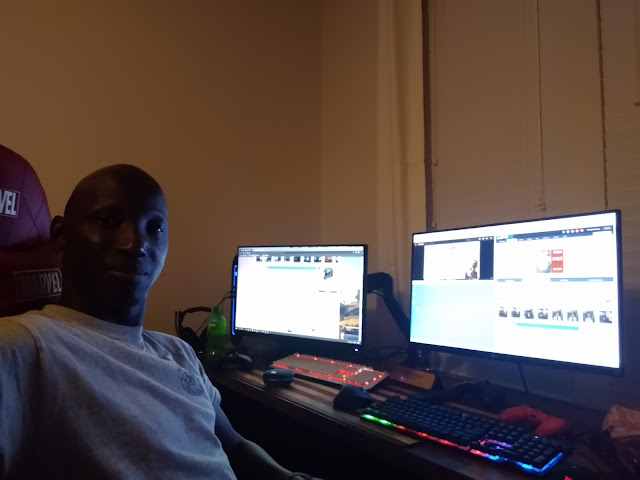This week-end, a friend of mine asked me out of the blue what is the role of a police officer, what is our job description. After briefly hesitating as I got caught off guard, I started saying that we, as law enforcement officers, wear many hats. We play the role of social workers, advisers, maybe sometimes lawyers, etc. Then I stated the obvious, that we also protect and serve, which is the cliche often given in the description of a police officer's job.
My friend was apparently waiting for me to say those words. He then had me listen to a podcast produced by NPR affiliate WNYC called "Radiolab." I was asked to listen to the episode called "No Special Duty," which was initially broadcast in November 2021.
I learned something interesting listening to the program. The United States Supreme Court has ruled back in 2005 that law enforcement officers have no duty or obligation to protect and serve despite that motto being widely used across jurisdictions (you see it on our police vehicles). This was actually a case law, Town of Castle Rock v Gonzales.
Here are the facts of the case from Oyez.org:
"Jessica Gonzales requested a restraining order against her estranged husband. A state trial court issued the order, which prohibited the husband from seeing Gonzales or their three daughters except during pre-arranged visits. A month later, Gonzales's husband abducted the three children. Gonzales repeatedly urged the police to search for and arrest her husband, but the police told her to wait until later that evening and see if her husband brought the children back. During the night Gonzales's husband murdered all three children and then opened fire inside a police station, where police returned fire and killed him. Gonzales brought a complaint in federal District Court, alleging that the Castle Rock police had violated her rights under the Due Process Clause of the Constitution by willfully or negligently refusing to enforce her restraining order. The Due Process Clause states: "No state shall...deprive any person of life, liberty, or property, without due process of law..." The District Court dismissed the complaint, ruling that no principle of substantive or procedural due process allowed Gonzales to sue a local government for its failure to enforce a restraining order. On appeal, however, a panel of the Court of Appeals for the Tenth Circuit found that Gonzales had a legitimate procedural due process claim. A rehearing by the full appeals court agreed, ruling that Gonzales had a "protected property interest in the enforcement of the terms of her restraining order," which the police had violated."
This escalated to the US Surpreme Court with a central question: can the holder of a restraining order bring a procedural due process claim against a local government for its failure to actively enforce the order and protect the holder from violence? Surprisingly, the Supreme Court sided with the Castle Rock Police Department. Again, from Oyez.org:
"In a 7-2 decision, the Court ruled that Gonzales had no constitutionally-protected property interest in the enforcement of the restraining order, and therefore could not claim that the police had violated her right to due process. In order to have a "property interest" in a benefit as abstract as enforcement of a restraining order, the Court ruled, Gonzales would have needed a "legitimate claim of entitlement" to the benefit. The opinion by Justice Antonin Scalia found that state law did not entitle the holder of a restraining order to any specific mandatory action by the police. Instead, restraining orders only provide grounds for arresting the subject of the order. The specific action to be taken is up to the discretion of the police. The Court stated that "This is not the sort of 'entitlement' out of which a property interest is created." The Court concluded that since "Colorado has not created such an entitlement," Gonzales had no property interest and the Due Process Clause was therefore inapplicable."
The episode I listened to cited another incident involving NYPD officers who delayed helping a man getting stabbed on a subway platform, even as they saw the suspect with the knife. The victim in that case sued the Police Department but also lost the case on the same grounds, that police officers do not have a duty to protect and serve.
The Radiolab presenter stated that she interviewed lawyers about those cases and that said lawyers stated even though they disagreed with the ruling, that it actually made sense. If police officers were forced to protect and serve, that the country would suddenly become a police state where anyone committing a crime, no matter how insignificant the infraction, would be arrested without any discretion used.
This is not to say that an officer can ignore a call for service without any consequence. I know for a fact that in Washington County, Maryland, it is well understood that officers in the various law enforcement agencies in the county do respond to calls for service, especially with violation of protective order calls. Although this Supreme Court case essentially means prosecuting an officer for failing to act would be a challenge, disciplinary action is almost certain for an officer who choose not to respond to such a call in this county. Washington County tends to have well run agencies that are progressive. I'm not using the word "progressive" in a political way, but rather meaning those agencies tend to keep up with social trends affecting the way police operate.
https://www.youtube.com/watch?v=AJtCZMIcj4I&t=331s












